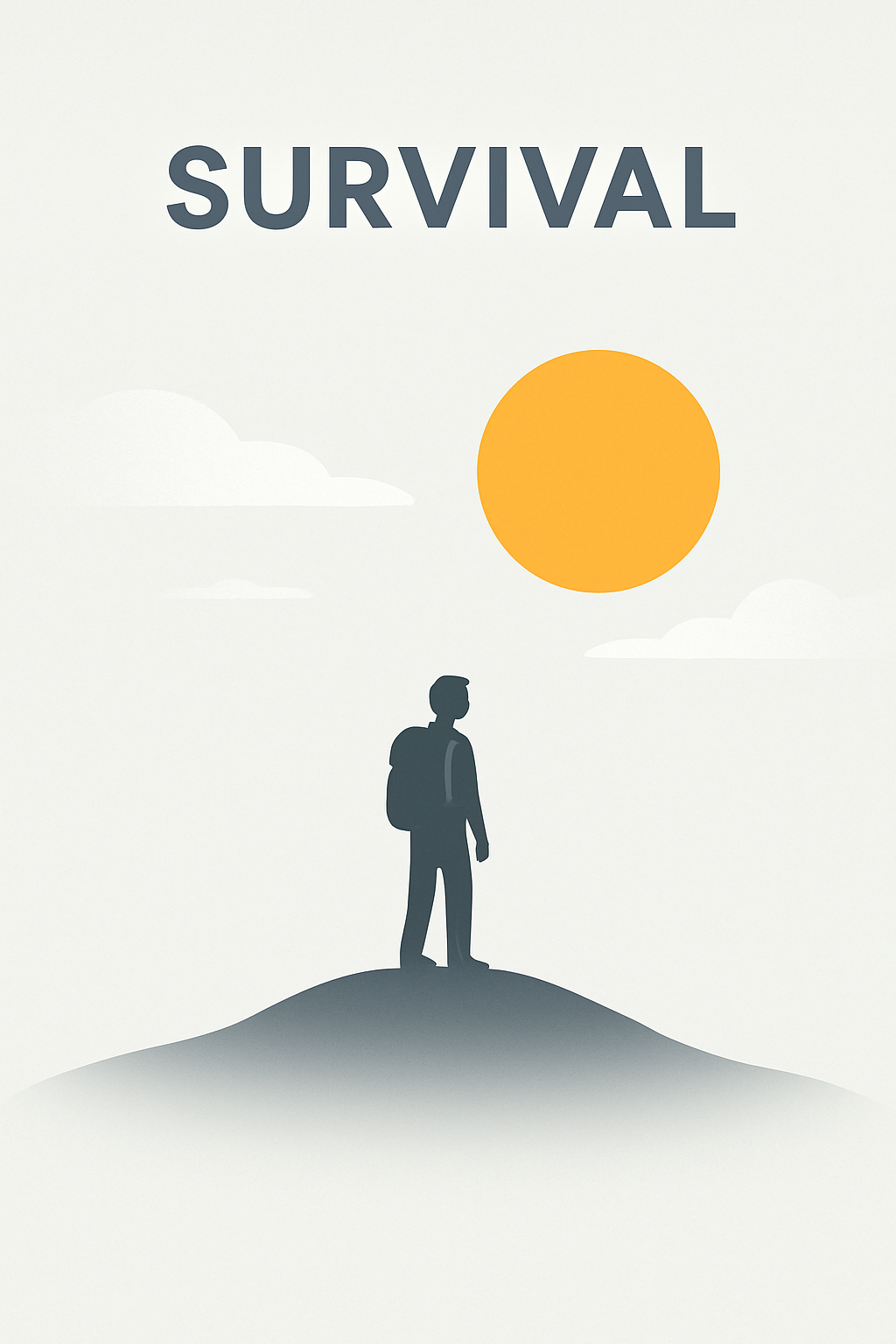
Withdrawing from the Overgrown System
Share
BeeHome as a Civilizational Experiment
In The Decline of Humankind, philosopher Wang Dongyue reminds us that modern civilization is not an endless march toward prosperity, but a trajectory that accumulates fragility. Civilization maintains itself through layers of compensation: energy grids to offset natural scarcity, financial systems to offset unequal distribution, consumer culture to offset spiritual emptiness. Yet the higher these compensations pile up, the weaker the system becomes.
It is as if we are all trapped in an overgrown system—vast, noisy, increasingly complex—where we must pay more and more (in time, money, and energy) just to keep pace. But the cost keeps rising, while the sense of freedom and security keeps diminishing.
BeeHome is a conscious act of “stepping out.”
Why step out?
Because this system has become too large, too fragile, and too demanding:
-
Energy overdependence: when the power grid goes down, an entire city can collapse within hours.
-
Housing imbalance: homes have turned into financial assets, leaving most people as burden-bearers instead of space-creators.
-
Consumerist fragility: more consumption was supposed to mean more happiness, but it often brings only more debt and emptiness.
Stepping out does not mean abandoning society. It means withdrawing from some layers of overdependence, and regaining control over the essentials of survival.
How BeeHome “steps out”
-
Energy
-
Instead of relying entirely on centralized power grids, BeeHome uses solar panels.
-
In summer: solar energy provides electricity and indoor comfort.
-
In winter: the Rocket Stove transforms biomass into cooking heat and warmth, in the simplest and most reliable way.
-
-
Housing
-
Instead of being trapped by inflated real estate markets and debt, BeeHome embraces modular, DIY building.
-
To build your own shelter is not only to solve a housing problem, but to reclaim the right to live and to create.
-
-
Lifestyle
-
BeeHome does not reject modern life—it simply reserves an independent, stable space within it.
-
A BeeHome can be a family refuge, an educational lab, a community hub, or even the seed of an entrepreneurial journey.
-
Stepping out is not escape—it is reconstruction
In everyday language, “stepping out” often implies giving up. But here it means something different: a deliberate reduction of complexity, in order to restore stability and meaning.
-
It is an attempt to lower complexity so life becomes simple and controllable.
-
It is a way to strengthen existence—even if larger systems fail, one still has light, fire, and shelter.
-
It is a path back to meaning—when you raise your own walls and ignite your own stove, life feels real again.
Seeking the future by stepping out
Civilizational decline is not necessarily a catastrophe. It may simply be the natural outcome of a system reaching its limits. Wang Dongyue’s insight is that when compensation reaches the breaking point, humanity must learn to continue in a low-compensation state.
BeeHome is precisely such a low-compensation survival experiment.
-
Here, people learn to sustain life with the most basic energies.
-
Here, families reclaim the right to inhabit and to build.
-
Here, communities reweave trust and resilience on a smaller scale.
Stepping out is not moving backward—it is stepping aside to find another way forward.
BeeHome’s vision is clear: before crisis arrives, create small “islands of safety” where life can continue, and meaning can endure.
